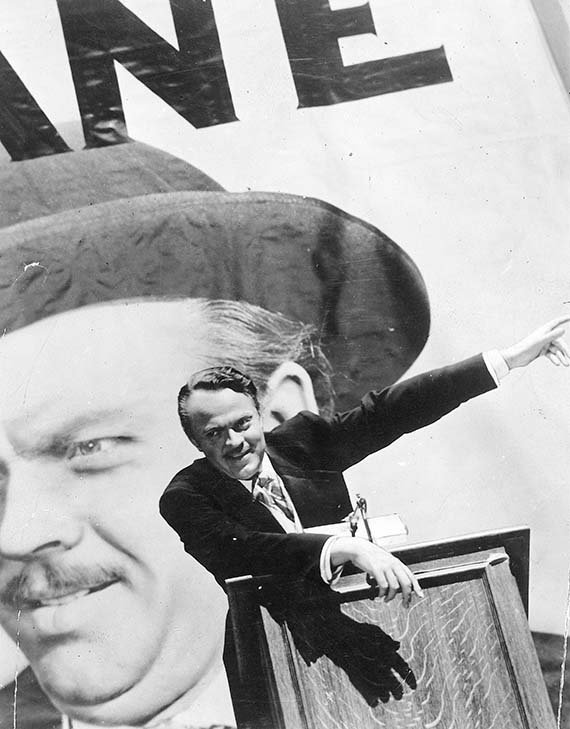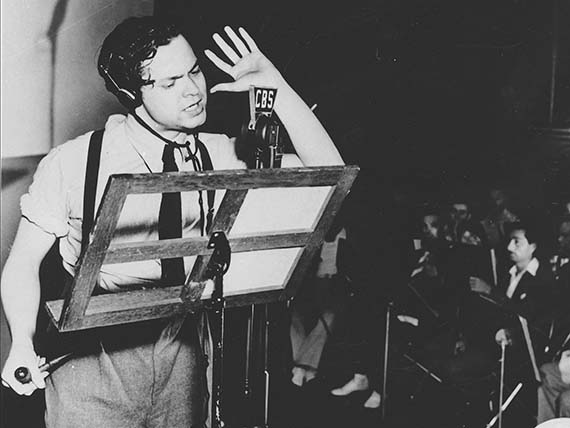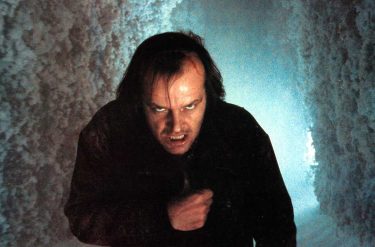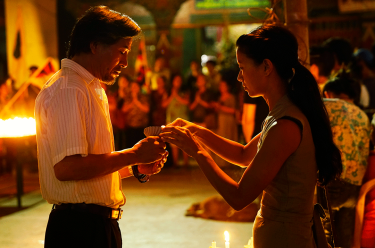
Opening this weekend, the Gallery’s Australian Cinématheque hosts a major film program of works by mercurial American film and broadcasting prodigy Orson Welles. ‘Orson Welles: A Retrospective’ is a ticketed program and screens at GOMA until 28 May 2014.
Acclaimed filmmaker, actor, theatre director, screenwriter, and producer Orson Welles (1915–85) worked extensively in radio, theatre, film and television. Hailed as the new wunderkind of American Theatre at only 23 years of age, he rocketed to international fame for his celebrated 1938 radio adaptation of HG Wells’s novel The War of the Worlds (1898). Presented on the night before Halloween as a music program, with news bulletin-style interjections of an escalating alien invasion, the program caused panic to a listening public already fearful of potential war looming in Europe. Forced to apologise the next day to an onslaught of press outraged at the duplicitous delivery of entertainment as news, Welles survived the media storm and went on to be featured on the cover of TIME magazine the same year and attracted attention from Hollywood.
Wooed by RKO to write, direct and produce two films over two years, Welles demanded full creative control over the final edit of each film. Remarkably, this was granted, and after two projects were rejected by the studio, Welles co-wrote, directed and starred in his feature film debut: Citizen Kane 1941. A virtuosic achievement nominated for nine Academy Awards and winning the award for Best Writing (Original Screenplay) by Welles and Herman Mankiewicz, the film was a critical success but failed to recoup its costs at the box office. Considered a thinly veiled attack on media giant William Randolph Hearst, the film was refused by many theatres and was prevented by Hearst from being advertised in any of his newspapers.
It was the beginning of a stormy relationship between Welles and the Hollywood studios, one that never fully recovered. Having taken two years to bring Citizen Kane to the screen, Welles’s original contract with RKO expired, forcing him to renegotiate for his next film, The Magnificent Ambersons 1942. The new contract no longer allowed Welles the final edit on the film and, while out of the country on another project, the film was re-edited without him before being released to a luke-warm response. Although the film would find critical praise years later, as was the case with Citizen Kane, the ensuing public battle between RKO and Welles saw him branded as difficult, which affected his ability to source independent funding for his subsequent films.
In a career spanning five decades, Welles’ was the creative force behind 12 completed feature films and two documentaries. His best known works also include Macbeth 1948, Othello 1952, Touch of Evil 1958, The Trial 1962 and Chimes at Midnight 1965. Welles was equally well-regarded as an actor, starring in films such as The Third Man 1949 and Compulsion 1959.
In addition to his feature films, the Australian Cinématheque’s retrospective will present his documentary F for Fake 1973, and a selection of his film and television appearances and radio broadcasts, including the infamous War of the Worlds recording.
Tickets are available online (booking fees apply) or at the GOMA Box Office from one hour prior to file screenings.


